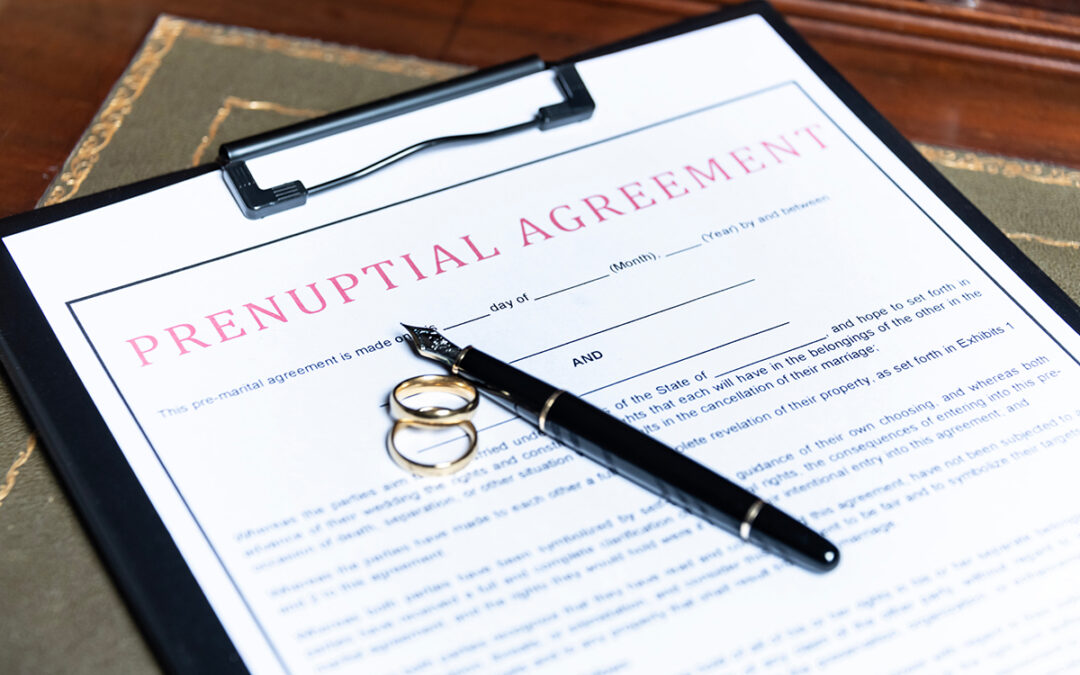What is a Massachusetts Prenuptial or Antenuptial Agreement?
Whether the document in question is referred to as a prenuptial agreement or an antenuptial agreement, it is simply a contract between two people who are planning to marry that is executed before the wedding. Such an agreement details what will happen to each party’s assets in the event of divorce or the death of one of them. If the parties were to divorce, the document may include a provision in which they each agree to waive alimony (spousal support) or, alternatively it may specifically provide how much alimony will be payable, by which party and for how long.
Do I Need a Prenuptial Agreement in Massachusetts?
If you are wondering whether you should execute a Prenup in Massachusetts before you marry, you probably should.
Parties acquire certain rights when they marry In Massachusetts that can be problematic if they later divorce or one of them dies, especially if one or both has assets they accumulated prior to the marriage and/or has children from a prior marriage or relationship. If one party, or both, would benefit under a trust or anticipates a large inheritance, the agreement may set forth how those assets would be handled in the event of a divorce or the death of one of them.
A couple planning to marry in their twenties probably does not need such an agreement if neither owns real estate and neither has significant retirement so long as there isn’t a potential inheritance or family funds to consider. But if the parties are in their fifties or sixties, own homes, have accrued retirement assets and other investments, and/or have children from a prior marriage or relationship, a prenuptial agreement is a must, and each party should be willing to give up certain rights for their union to be fair to them and to their children.
What Is Included in a Massachusetts Prenuptial Agreement?
Traditionally, as part of a Prenuptial Agreement in Massachusetts, each party agrees not to seek an interest in any assets held by the other individually at the time of the marriage. So, if things do not work out, they each can walk away with the assets they brought to the marriage in the first place. Sometimes these assets appreciate in value over time or are used to secure future assets. If such additional funds are kept separate, they can likely also be protected.
If the parties obtain assets jointly after they marry, those often remain joint and can be divided equitably in the event of a divorce.
If the parties have children of their marriage, the custody, care and support of these later born children is covered by Massachusetts law and cannot be changed in the context of this kind of document.
When Should A Massachusetts Prenuptial Agreement be Drafted and Signed?
Massachusetts Prenuptial Agreement should be drafted and executed as long before the wedding as possible. One of the requirements for such an agreement to be considered valid later is that the negotiation of the terms was free from undue influence. The closer to the wedding the agreement is signed, the more likely a Court might feel one party or the other was pressured and refuse to enforce the terms contained in the document.
Requirements for a Valid Massachusetts Prenuptial Agreement
For a Prenuptial Agreement in Massachusetts to be valid, and later enforced by a Court, it must be fair and reasonable both at the time it is drafted and signed as well as at any future time a party seeks to enforce it. For example, if neither party had significant income at the time of the marriage but 15 years later one is earning five times as much as the other, an alimony waiver would no longer be considered fair and reasonable. Prior to signing, each party must make full financial disclosure to the other as to income, assets and liabilities and each must understand what rights he or she is waiving.
Explore our website to learn more about Massachusetts Prenuptial Agreements. Contact Newburyport Family Law to start the conversation today.
